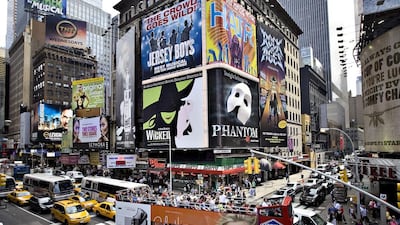In a recent article published by the The New Yorker, a writer described his 20-hour layover in Dubai, en route from New York City to Sri Lanka. Will you be surprised if I tell you that he goes to the top of the Burj Khalifa, wanders in two mega-malls and does some indoor skiing? He says that malls are “avatars of cosmopolitan capitalism” and his piece is titled “Dubai, the World’s Vegas”. The subtitle of the article is “a frictionless layover in a non-place of a city,” although it would perhaps be more accurate to call it “Tourism 101”.
Let’s imagine, for a minute, that we’re flying from Abu Dhabi to Los Angeles, and have a 20-hour layover in New York. What would be the Manhattan equivalent of this Dubai itinerary? Well, first we’d have to do away with “frictionless”. The Dubai article implies that “frictionless” is somehow suspect, although I’m not sure why, given that after a 15-hour flight most of us want as little friction as possible. Maybe the author felt nostalgic for New York’s JFK airport, which is about as friction-full as you can imagine, as if the airport’s motto should be “only the weak want it easy”.
Once we wrestle ourselves out of JFK’s clutches, we’ll head to Herald Square, home of the iconic Macy’s department store. If we make it past the gauntlet of people spraying perfume samples on the main floor, we can buy everything from socks to soap to sofas; it’s the epitome of mass-market capitalism.
From Macy’s, let’s follow the herds of people heading a few blocks uptown to see a show, which we know from reading the in-flight magazine is something that real New Yorkers do all the time.
New Yorkers love Broadway, especially musicals, and we’re in luck because we’ve scored tickets for an all-time classic, Phantom of the Opera. We won’t mind spending a small fortune on theatre tickets because after 11,000 performances, the Phantom performers know exactly what they’re doing. There’s none of that risky pushing-the-envelope stuff that happens in newer productions.
Humming a song from the show – that Brit Andrew Lloyd Webber sure knows how to write a tune – we head into Times Square, which someone in the airport told us was the heart of the city. Once we see the billboards gleaming in the darkness, we know why New York is called the city that never sleeps. Who could sleep in the light of all of these displays? It’s like a man-made aurora borealis, lighting up the sky for miles around, each screen trying to out-flash, out-blink and out-sell the other. People jam the streets and sidewalks, staring upwards as if stunned by pulsing displays of electricity and consumerism.
We take refuge from the barrage of electronics in a nearby Appleby’s restaurant. Our waitress hands us menus almost as big as the Phantom’s cape, and we carefully choose our main courses. New York is a real foodie town, we’ve been told, so we don’t want to waste our one restaurant meal on something we could eat anywhere. It’s hard to choose between all the homestyle mains, so we order an assortment and chow down until our waistbands pop.
After dinner we scramble to find the bus back to JFK. The horrendous traffic means that in order to make it to our gate, we have to sprint the entire length of the terminal, which is hard to do with a belly full of Appleby’s. As the plane takes off and we ease our seat belts over our stomachs, we can reflect on our time in the “Big Apple”, that densely packed metropolis where we saw no apples, just man-made environments where nothing was local and everything was for sale.
An accurate picture of New York? Nope. It’s a tiny sliver that most New Yorkers try to ignore because it’s so thronged with tourists. The lights of Times Square shine so brightly, in fact, that it sometimes looks like the Vegas strip. Ironically, if you really want to see the city, you have to get away from the bright lights. And if you want to see Dubai, you have to leave the mall.
Deborah Lindsay Williams is a professor of literature at NYU Abu Dhabi

